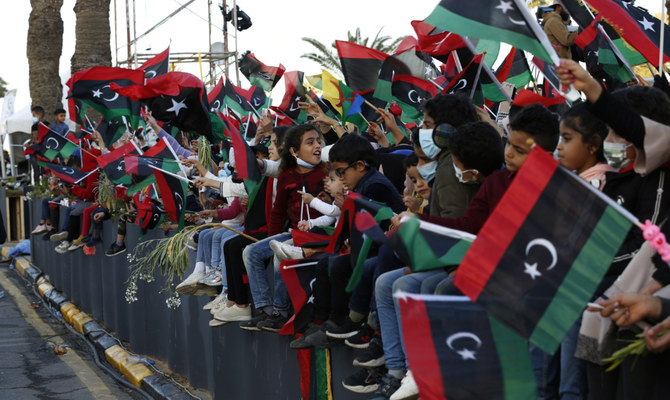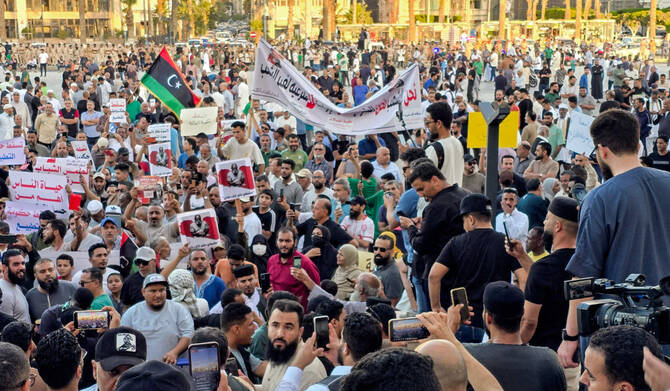TRIPOLI: Libya’s interim prime minister announced a series of populist spending plans as he sought to strengthen his position against a push by the eastern-based parliament to replace him.
Abdul Hamid Al-Dbeibah, who has sworn only to hand over power after an election, pledged help for Libyans buying land and homes, and said he would raise some state salaries and continue to subsidise weddings.
However, his position and that of the internationally recognized Government of National Unity that he represents hangs in the balance with the parliament tasking former Interior Minister Fathi Bashagha to form a new administration.
Dbeibah, who outlined the plan in a speech marking the anniversary of the 2011 uprising that forced out Muammar Qaddafi, says he does not recognize the validity of Bashagha’s appointment.
Bashagha has been holding consultations with political and regional factions and is due to propose a new Cabinet next week — a moment that may determine the success or failure of the parliament’s push to replace Dbeibah.
It comes at a key moment in the fragile attempt to wrest Libya from more than a decade of chaos and violence after the collapse in December of a planned national election, as many Libyans fear the new political crisis could trigger new strife.
The parliament, which mostly sided with eastern forces in the civil war that started in 2014, moved to seize control of the political process after the elections collapsed.
Parliament Speaker Aguila Saleh said the GNU was no longer valid and the chamber set a roadmap that involved redrafting the temporary constitution, appointing a new interim government and pushing back elections.
Critics of Saleh accuse him of seeking to postpone elections that would replace the parliament and of abusing parliamentary processes to push through Bashagha’s designation as prime minister, both of which he denies.
Dbeibah has said that eight years after the parliament was elected, its legitimacy has expired and he has promised to issue his own roadmap in the coming days for national elections in June.
Reuters






















